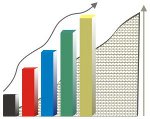 Medtronic CEO Ishrak Omar used the company's first quarter 2015 fiscal year financial report to explain why their recently announced acquisition of Covidien will be good for the United States economy.
Medtronic CEO Ishrak Omar used the company's first quarter 2015 fiscal year financial report to explain why their recently announced acquisition of Covidien will be good for the United States economy.
Since the acquisition was announced, several reports were critical of the company's acquisition — the biggest in the orthopedic industry totaling $42.9 billion. Shareholders on both sides are suing, alleging an unfair agreement that will leave shareholders high-and-dry. However, it's the company's decision to move Medtronic's headquarters from Minnesota to Ireland — where Covidien is based — that garnered the most attention.
If the transaction is approved, and it's expected to be approved by the end of the year despite the lawsuits, moving headquarters overseas and establishing the new Medtronic PLC, where tax rates are considerably lower than in the United States. Analysts have panned the move and even President Barack Obama criticized the company's "tax inversion" strategy, hoping to close the loophole allowing companies to pursue the same tax-avoiding strategy in the future.
However, now Mr. Omar says the move and acquisition is not only good for the company, but good for the United States economy. "Our growth was broad based across businesses and geographies," he said in the first quarter report. "I was especially pleased that our innovation pipeline is delivering strong results, particularly in the U.S., which had its highest revenue growth performance in five years."
Here are five reasons why the Medtronic-Covidien acquisition is good for the United States economy:
1. The acquisition will free up cash generated overseas to reinvest in the United States. Shortly after announcing the acquisition, Medtronic pledged to create 1,000 jobs in Minnesota and plans to commit $10 billion in technology investments over the next 10 years in areas such as early stage venture capital investments, acquisition and research and development in the United States.
"In addition to being highly strategic, the Covidien acquisition is also extremely attractive financial[ly] with achievable cost synergies that are expected to make the transaction accretive in the first year on a cash basis and within two years on a GAAP basis," said Mr. Ishrak in the conference call as reported in Seeking Alpha. "The combined company will also generate significant free cash flow which can be deployed with much greater flexibility."
2. Shareholders will benefit which will ultimately strengthen the company in the United States. The company has a strategy for future growth, including returning 50 percent of the free cash flow to shareholders; to achieve their goals, the company will focus on therapy innovation, globalization and economic value. "We believe the Covidien acquisition will accelerate these strategies, bolstering our long term market competitiveness as well as the sustainability and consistency of our financial performance," Mr. Ishrak said.
3. Medtronic's tax rate on global income will fall around 2 percent after the acquisition. At the same time, Medtronic will continue to pay significant taxes in the United States, including federal, state and local income taxes on all United States earnings, Social Security taxes, property tax and the medical device tax. These taxes represent 45 percent of United States income and the company expects to pay similar rates post-close, according to the Seeking Alpha report.
4. Revenues were strong in the first quarter — exceeding expectations — and are projected to grow through the end of the fiscal year because of the acquisition. The company's earned $0.93 per share excluding the restructuring charges and costs related to the acquisition, when they were only expected to reach $0.92 per share. The United States revenue was particularly strong, growing 6 percent, driven by the company's new CoreValve Replacement heart valve. In the financial report, Medtronic reiterated the outlook for fiscal year profits in 2015, estimating a $4 to $4.10 profit per share excluding special items.
5. New innovation will make medical care more economical in the United States and abroad. Therapy innovation was more than half of the company's global growth during the quarter, and key product launches will continue to drive growth. Today's healthcare market is insistent upon increasing quality while also lowering the cost of care, allowing patients to return to their normal lives more quickly and lowering complications and reoperations, which come at a considerable cost.
"When combined with our focus on globalization and economic value, further enhanced by our pending acquisition of Covidien, we are well-positioned to further improve our competitive position and long-term growth profile," Mr. Ishrak said in the Seeking Alpha report.
Later in the report, he added, "Covidien has extensive emerging market R&D and manufacturing while Medtronic has well-established clinical expertise. These capabilities applied across a much broader product offering will significantly increase the number of attractive solutions that we can offer to governments and major providers. Finally this transaction enhances Medtronic's ability to deliver economic value to a broader range of stakeholders. The value proposition of Covidien's technologies primarily delivers hospital efficiency."

